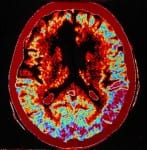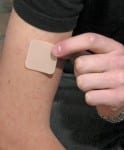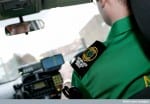 Novel treatments for stroke are increasingly being tested and delivered in the ultra-acute period during initial presentation to ambulance services. In the first feasibility trial of nitroglycerin (glyceryl trinitrate) in ultra-acute stroke (RIGHT) there were early indications of improvements in outcomes and disability at three months. The research team was led by Prof Philip Bath and his team at Nottingham University, together with Sandeep Ankolekar, Prof Niro Siriwardena from CaHRU and researchers at East Midlands Ambulance Service NHS Trust.
Novel treatments for stroke are increasingly being tested and delivered in the ultra-acute period during initial presentation to ambulance services. In the first feasibility trial of nitroglycerin (glyceryl trinitrate) in ultra-acute stroke (RIGHT) there were early indications of improvements in outcomes and disability at three months. The research team was led by Prof Philip Bath and his team at Nottingham University, together with Sandeep Ankolekar, Prof Niro Siriwardena from CaHRU and researchers at East Midlands Ambulance Service NHS Trust.
 A nested qualitative study entitled ‘Views of paramedics on their role in an out-of-hospital ambulance-based trial in ultra-acute stroke: qualitative data from the Rapid Intervention with Glyceryl Trinitrate in Hypertensive Stroke Trial (RIGHT)‘ explored facilitators and barriers to paramedic involvement in clinical trials. The fieldwork was conducted by Dr Sandeep Ankolekar and the team. Barriers to participation included the pressure of the emergency setting, difficulties obtaining informed consent, institutional support for research, the steep learning curve for research naive staff and relative rarity for individual paramedics of clinical conditions seen, and difficulty in attending training sessions.
A nested qualitative study entitled ‘Views of paramedics on their role in an out-of-hospital ambulance-based trial in ultra-acute stroke: qualitative data from the Rapid Intervention with Glyceryl Trinitrate in Hypertensive Stroke Trial (RIGHT)‘ explored facilitators and barriers to paramedic involvement in clinical trials. The fieldwork was conducted by Dr Sandeep Ankolekar and the team. Barriers to participation included the pressure of the emergency setting, difficulties obtaining informed consent, institutional support for research, the steep learning curve for research naive staff and relative rarity for individual paramedics of clinical conditions seen, and difficulty in attending training sessions.
 Suggestions for improvement included a simple diagnostic tool for stroke, use of assent and proxy consent on behalf of patients (as in the trial), and simpler trial processes.Recruitment became easier with each new randomisation attempt. Paramedics in the study were motivated to participate in research. Treatment of acute stroke in the out-of-hospital environment was feasible, but important barriers needed to be addressed.
Suggestions for improvement included a simple diagnostic tool for stroke, use of assent and proxy consent on behalf of patients (as in the trial), and simpler trial processes.Recruitment became easier with each new randomisation attempt. Paramedics in the study were motivated to participate in research. Treatment of acute stroke in the out-of-hospital environment was feasible, but important barriers needed to be addressed.
